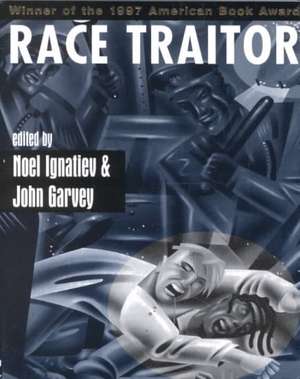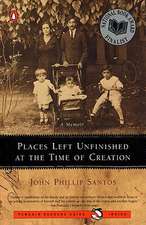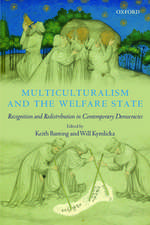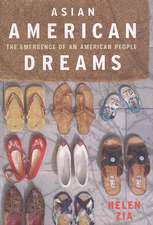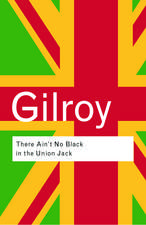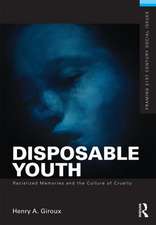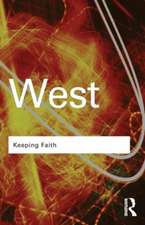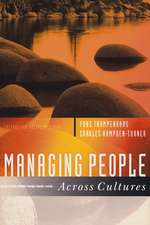Race Traitor
Editat de Noel Ignatiev, John Garveyen Limba Engleză Paperback – 30 apr 1996
Working from the premise that the white race has been socially constructed, Race Traitor is a call for the disruption of white conformity and the formation of a New Abolitionism to dissolve it.
In a time when white supremicist thinking seems to be gaining momentum, Race Traitor brings together voices ranging from tenured university professors to skinheads and prison inmates to discuss the "white question" in America. Through popular culture, current events, history and personal life stories, the essays analyze the forces that hold the white race together--and those that promise to tear it apart. When a critical mass of people come together who, though they look white, have ceased to act white, the white race will undergo fission and former whites will be able to take part in building a new human community.
| Toate formatele și edițiile | Preț | Express |
|---|---|---|
| Paperback (1) | 388.70 lei 43-57 zile | |
| Taylor & Francis – 30 apr 1996 | 388.70 lei 43-57 zile | |
| Hardback (1) | 1003.61 lei 43-57 zile | |
| Taylor & Francis – 30 apr 1996 | 1003.61 lei 43-57 zile |
Preț: 388.70 lei
Nou
Puncte Express: 583
Preț estimativ în valută:
74.38€ • 77.86$ • 61.54£
74.38€ • 77.86$ • 61.54£
Carte tipărită la comandă
Livrare economică 07-21 aprilie
Preluare comenzi: 021 569.72.76
Specificații
ISBN-13: 9780415913935
ISBN-10: 0415913934
Pagini: 294
Dimensiuni: 152 x 229 x 18 mm
Greutate: 0.9 kg
Ediția:1
Editura: Taylor & Francis
Colecția Routledge
Locul publicării:Oxford, United Kingdom
ISBN-10: 0415913934
Pagini: 294
Dimensiuni: 152 x 229 x 18 mm
Greutate: 0.9 kg
Ediția:1
Editura: Taylor & Francis
Colecția Routledge
Locul publicării:Oxford, United Kingdom
Notă biografică
Noel Ignatiev is the author of How the Irish Became White (Routledge, 1995). John Garvey works in the Office of Academic Affairs at City University of New York. Together they are the founders and editors of Race Traitor: A Journal of the New Abolitionism.
Recenzii
"[T]he clarity and frankness with which Race Traitor holds its racial nominalism forth is probably unmatched in the widening congregation of critical work on whiteness." -- Postmodern Culture
"The value of Race Traitor comes from its confessional quality, a view of repentant and sometimes angry whites kneeling at the rail to purge their souls of all racist taint." -- Quarterly Black Review of Books
"Race Traitor is among the strongest, funniest and most politically charged critiques of whiteness to appear since slave storytellers spun out the "Master and John" tales. Throughout its brief existence as a just-above-ground journal, it has combined penetrating articles on the history and sociology of race with inspired manifest telling cultural commentaries and frontline reports from the struggle to abolish whiteness." -- David R. Roediger, University of Minnesota, author of The Wages of Whiteness
"In the tradition of John Brown, whose epithet and agenda Race Traitor controversially memorializes in its title, the articles collected here do violence to liberal complacency and scholarly apathy. More such race treachery, such loyalty to mankind, to bend John Brown's motto, needs to be committed--not subsumed into academic or belle lettrestic discourse." -- Kathryne V. Lindberg, Wayne State University
"Race Traitor is the most revolutionary challenge to racism made by American-European intellectuals in my lifetime." -- Ishmael Reed
"Thrilling to read! Required reading for all white hip-hop fans." -- Upski, author of Bomb the Suburbs
"...its operative principle is simple: to break the power of whiteness in this country by encouraging people to renounce the wages of whiteness." -- Lingua Franca, Oct. 1996
"The value of Race Traitor comes from its confessional quality, a view of repentant and sometimes angry whites kneeling at the rail to purge their souls of all racist taint." -- Quarterly Black Review of Books
"Race Traitor is among the strongest, funniest and most politically charged critiques of whiteness to appear since slave storytellers spun out the "Master and John" tales. Throughout its brief existence as a just-above-ground journal, it has combined penetrating articles on the history and sociology of race with inspired manifest telling cultural commentaries and frontline reports from the struggle to abolish whiteness." -- David R. Roediger, University of Minnesota, author of The Wages of Whiteness
"In the tradition of John Brown, whose epithet and agenda Race Traitor controversially memorializes in its title, the articles collected here do violence to liberal complacency and scholarly apathy. More such race treachery, such loyalty to mankind, to bend John Brown's motto, needs to be committed--not subsumed into academic or belle lettrestic discourse." -- Kathryne V. Lindberg, Wayne State University
"Race Traitor is the most revolutionary challenge to racism made by American-European intellectuals in my lifetime." -- Ishmael Reed
"Thrilling to read! Required reading for all white hip-hop fans." -- Upski, author of Bomb the Suburbs
"...its operative principle is simple: to break the power of whiteness in this country by encouraging people to renounce the wages of whiteness." -- Lingua Franca, Oct. 1996
Cuprins
Introduction a beginning, Noel Ignatiev, John Garvey; Part 1 The New Abolitionism; Chapter 1 Abolish the White Race by any means necessary; Chapter 2 Immigrants and Whites, Noel Ignatiev; Chapter 3 My Problem with Multi-Cultural Education, John Garvey; Part 2 Unreasonable Acts; Chapter 4 When Does the Unreasonable Act Make Sense?; Chapter 5 Running the Ball in Crown Point, Kingsley Clarke; Chapter 6 Who Lost an American?, Joel Gilbert, Noel Ignatiev; Chapter 7 Behind the Walls of Prison, Lorenzo Komboa Ervin; Chapter 8 Richmond Journal thirty years in black & white, Edward H. Peeples; Chapter 9 Manifesto of a Dead Daughter, Patricia Eakins; Part 3 Aux Armes; Chapter 10 Aux Armes! Formez Vos Bataillons!; Chapter 11 The American Intifada, Noel Ignatiev; Chapter 12 Three Days that Shook the New World Order the los angeles rebellion of 1992; Chapter 13 Panic, Rage, and Reason on the Long Island Rail Road, John Garvey; Chapter 14 Police-Assisted Homicide, Joel Olson; Chapter 15 Accident Report, John Strucker; Part 4 Crossover Dreams; Chapter 16 Crossover Dreams the “exceptional white” in popular culture, Phil Rubio; Chapter 17 Responses to Crossover Dreams, Salim Washington, Paul Garon; Part 5 White Silence; Chapter 18 Anti-Fascism, “Anti-Racism,” and Abolition; Chapter 19 Civil War Reenactments and Other Myths, Phil Rubio; Chapter 20 The Jewish Caste in Palestine; Chapter 21 Black-Jewish Conflict in the Labor Context race, jobs, and institutional power, Herbert Hill; Chapter 22 Family Matters, John Garvey; Chapter 23 White Silence, White Solidarity, Christine E. Sleeter; Part 6 Letters; Chapter 24 Letters; int Interview;
